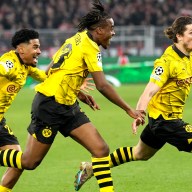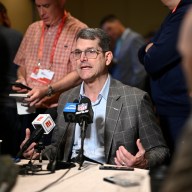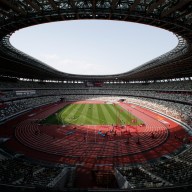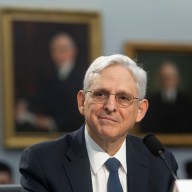By Philip O’Connor and Jack Stubbs
LILLE/MOSCOW (Reuters) – Soccer rivalry and fan violence spilled into global politics as Moscow summoned the French ambassador over detentions of Russians at Euro 2016 and warned an “anti-Russian” mood could even damage relations between Russia and France. Russian Foreign Minister Sergei Lavrov accused other countries’ soccer fans of “absolutely provocative actions” at the tournament, such as trampling on the Russian flag.
The epicenter of soccer violence at Euro 2016 meanwhile moved from the south of France to the far north. Police used pepper spray and tear gas to disperse English fans on Wednesday near the station in the northern city of Lille, a police source said. They intervened after fans starting running in all directions following a detonation of unknown origin, the source told Reuters. Earlier, police pushed away a group of English fans when they became “threatening”. Tense scenes continued throughout Wednesday evening. Police used tear gas again against a small crowd of rowdy England fans in central Lille.
Authorities had flooded the city with police ahead of the next matches for Russia and England in the soccer tournament.
Four Russian fans were arrested in Lille and were to be deported after being detained before Wednesday’s game between Russia and Slovakia, which the Russians lost 2-1.
“Two of the Russians were arrested yesterday evening during a fight in Lille and two after being found drunk in a car with weapons,” a spokesperson at the Lille prefecture said. The weapons were wooden sticks, a police source said. “Today, the measure is very simple: flood the public space with police so that there is no room for any form of hooliganism,” Sports Minister Patrick Kanner said.
In Moscow, Russia’s Foreign Ministry said it had summoned French ambassador Jean-Maurice Ripert on Wednesday.
The French envoy was notified about “discrimination” toward Russian citizens, it said, adding that “further fanning of anti-Russian sentiments” could damage relations between France and Russia. “RUINING THE PARTY”
The French embassy in Moscow said on its website the ambassador replied that arrests had been carried out “absolutely according to the law, in full transparency vis-a-vis the Russian authorities”. “Fans from a number of countries took part in unacceptable violence in Marseille,” he said during the meeting.
“The French government remained determined, together with UEFA, to stop troublemakers from ruining the party that is the Euro.”
French Foreign Minister Jean-Marc Ayrault said later: “Whatever their nationality, Russian, French, British or German, visitors are coming to France to celebrate soccer. That stands for Russians and British citizens and the French justice deals with them in the same manner.” Both Russia and England have been threatened with expulsion from the competition after fans clashed for three days in Marseille on the weekend, drawing volleys of tear gas from riot police.
“We cannot close our eyes to the absolutely provocative actions by supporters from other countries,” Russian Foreign Minister Lavrov told parliament.
“You have probably seen the outrageous images on TV when the Russian flag is getting stamped on and when insults are being screamed about the Russian leadership and about leading Russian sports people.” President Vladimir Putin and security officials have discussed what lessons Russia can learn from the Euro 2016 for the 2018 World Cup in Russia, the RIA news agency quoted the Kremlin as saying.
France is desperate to avoid a repeat of the violence that marred the England-Russia match in Marseille on Saturday. Dozens of Russian and English fans were arrested.
JOY IN ICELAND
Russian Sports Minister Vitaly Mutko said he did “not have any certainty that disorder involving Russian fans will not be repeated,” and blamed England fans for provoking the trouble.
Mutko called UEFA’s decision to fine his side and give it an official warning over violence inside the stadium in Marseille “excessive”.
The tension has now moved north to Lille. Although Russia and England will not meet again in the group stage, they were to play their next matches just a few miles apart. England and Wales clash in nearby Lens on Thursday. Unlike in Marseille, where fans were able to drink for hours on end, they struggled to do so in Lille due to a blanket liquor ban imposed until Friday, closing bars and cafes and stopping shops and petrol stations selling alcohol. “It’s a party, and our job is to make a good party. But if you have violence, we are ready to fight against this violence,” local police chief Olivier Dimpre told Reuters outside Flandres train station, where about a dozen riot police vans were parked. In Reykjavik, the mood was brighter. Icelanders draped in blue and red celebrated their tiny country’s 1-1 draw against Portugal on Tuesday in the tournament. Some invoking the Norse god Thor, they spilled into the streets to chant “Afram (Go) Iceland!” (Additional reporting by John Irish, Pierre Savary and Emmanuel Jarry; Writing by Andrew Roche)

















